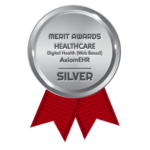Health care is an immensely rewarding field, but it can also burn you out. Although the pandemic deserves much blame for that, health care’s hefty administrative burden is also a big factor with its endless red tape.
For more than two years and counting, the pandemic has heaped stress, fear and exhaustion onto health care workers, alienating them from their patients and diminishing their sense of accomplishment. Yet even prior to the pandemic, burnout had reached crisis levels with as many as 54% of nurses and physicians and 60% of medical students and residents reporting symptoms of burnout, according to U.S. Surgeon General Vivek Murthy’s new report on health worker burnout.
Whatever the cause, burnout-inducing stress poses grave concerns for patients’ welfare in the form of medical errors, hospital-acquired illness, staffing shortages, and reduced face time with one’s provider. Not surprisingly, burnout is similarly prevalent in behavioral health: As many as 67% of mental health workers may be experiencing high levels of burnout. Researchers estimate burnout-related turnover costs the U.S. up to $15 billion annually.
Paperwork is a problem
Some burnout factors have little to do with treating patients. The surgeon general’s report cites “burdensome administrative paperwork” and “lack of human-centered technology” among these factors. “For every hour of direct patient care, physicians currently spend 2 hours on the Electronic Health Record (EHR) system,” the report says. “Nurses spend up to 41% of their time on EHRs and documentation.”
A classic example of EHR interference is clinicians typing their notes as they try to talk with patients. “It is disruptive and time-consuming,” Casey Ross wrote in STAT in 2019. “Patients don’t like being talked to over the doctor’s shoulder.”
Enter AI
One partial solution has been bringing a third person into the room, a “human scribe” to enter the data while the doctor and patient talk. Although it’s been somewhat effective, there are obvious tradeoffs, including questions about scribes’ qualifications, training, and cost.
To get the benefits of human transcriptionists without the headaches, several EHR vendors offer scribe apps that employ voice recognition technology as part of their software packages. These apps move large data sets into notes fields to document encounters, a function that’s especially helpful in the lengthy-narrative world of behavioral health care.
This is not standard dictation or voice control. As artificial intelligence (AI) listens to a patient-provider conversation, it selects the important information that pertains to the discussion, and puts the information where it needs to go to in the clinical record. Better platforms can learn as providers correct them.
In this way, AI is beginning to alleviate some of the administrative tasks that burn health professionals out. Voice recognition for health care professionals should also address some of the human-powered solutions that introduce risk, cost too much money, and intrude on patient privacy. These are some of the things that AxiomEHR, our AI-powered EHR platform, does best.
Want to see what it’s like? Schedule a demo today.





